Our final GPU pricing update of the year brings some interesting data points considering we’ve finally gotten some new GPUs to talk about. You’ve likely seen our coverage by now, namely for the Nvidia GeForce RTX 40 series (4090 and 4080) and just recently AMD’s Radeon RX 7900 with the terribly named 7900 XTX and 7900 XT.
As usual we’ll be looking at how sales of those cards are going, how they have affected the broader GPU market, and a few things to think about if you are interested in buying a new graphics card right now.
Nvidia RTX 40 Series Sales Update
What we talked about in last month’s update regarding Nvidia’s new GPUs is still true in December. The GeForce RTX 4090 remains in strong demand and depending on your region can be a little difficult to purchase right now.
Resupplies have been steady though they’ve been lower than the initial supply at launch, but even that hasn’t satisfied demand for the card in the US to cite one example. The RTX 4090 is currently out of stock at Newegg in both the US and Canada — at least via first-party listings which are the only listings you should consider. Microcenter has also struggled to keep the card in stock.
In Australia, the RTX 4090 is even higher priced, which we believe has translated into less sales, but as of writing you can buy one of a few models at various retailers, though the cheapest variants are typically unavailable. While ideally we’d be seeing more stock of the RTX 4090, this is a typical launch pattern that we expect to see settle early next year.
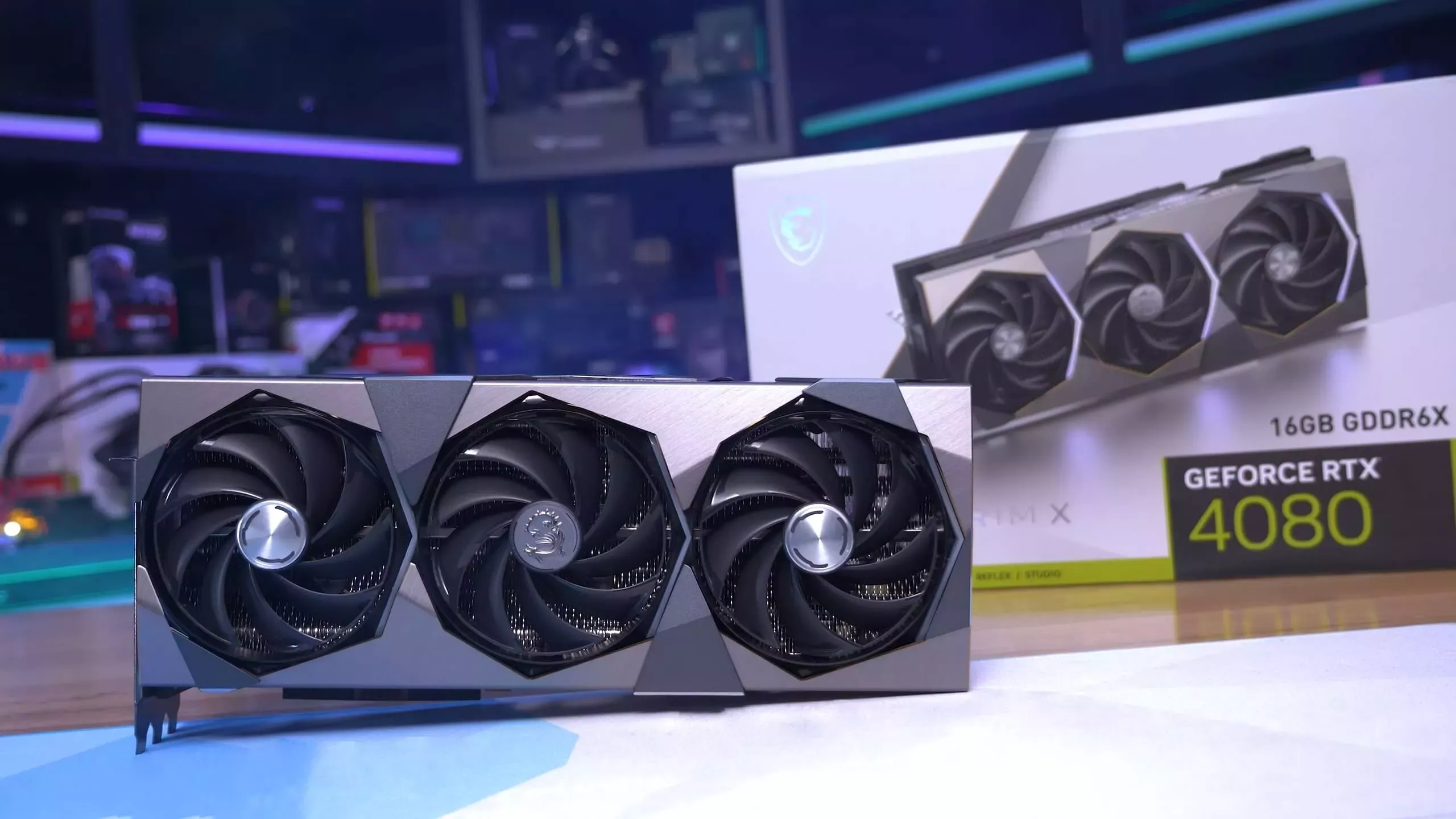
As for the RTX 4080… things still aren’t looking good for this card at all. It’s easy to find the RTX 4080 for sale at retailers and at no point has the card gone out of stock. Demand for this model has remained low since it was launched and part of the reason may be that there’s low stock of MSRP cards, with most models available at retailers like Newegg and Microcenter start at $1,300 or above, which is a ludicrous and unattractive amount for what is already an expensive product.
In other regions like Australia, the RTX 4080 is an even worse deal, and that’s lead to poor sales according to the retailers we’ve spoken to. The consensus is only the absolute cheapest models have any chance of selling, with some struggling to sell their launch allocation, let alone any resupplies.
Thanks to razor-thin margins, there’s basically no room for price movement either, so don’t expect these cards to suddenly get cheaper without assistance from Nvidia. Two retailers we spoke to were either already selling 4080s at cost, or were considering doing so, just to clear out inventory. With that said, we can’t be sure if this situation applies outside of Australia, as Nvidia GPUs are especially expensive Down Under relative to some other regions.
AMD Radeon RX 7000 Series Sales
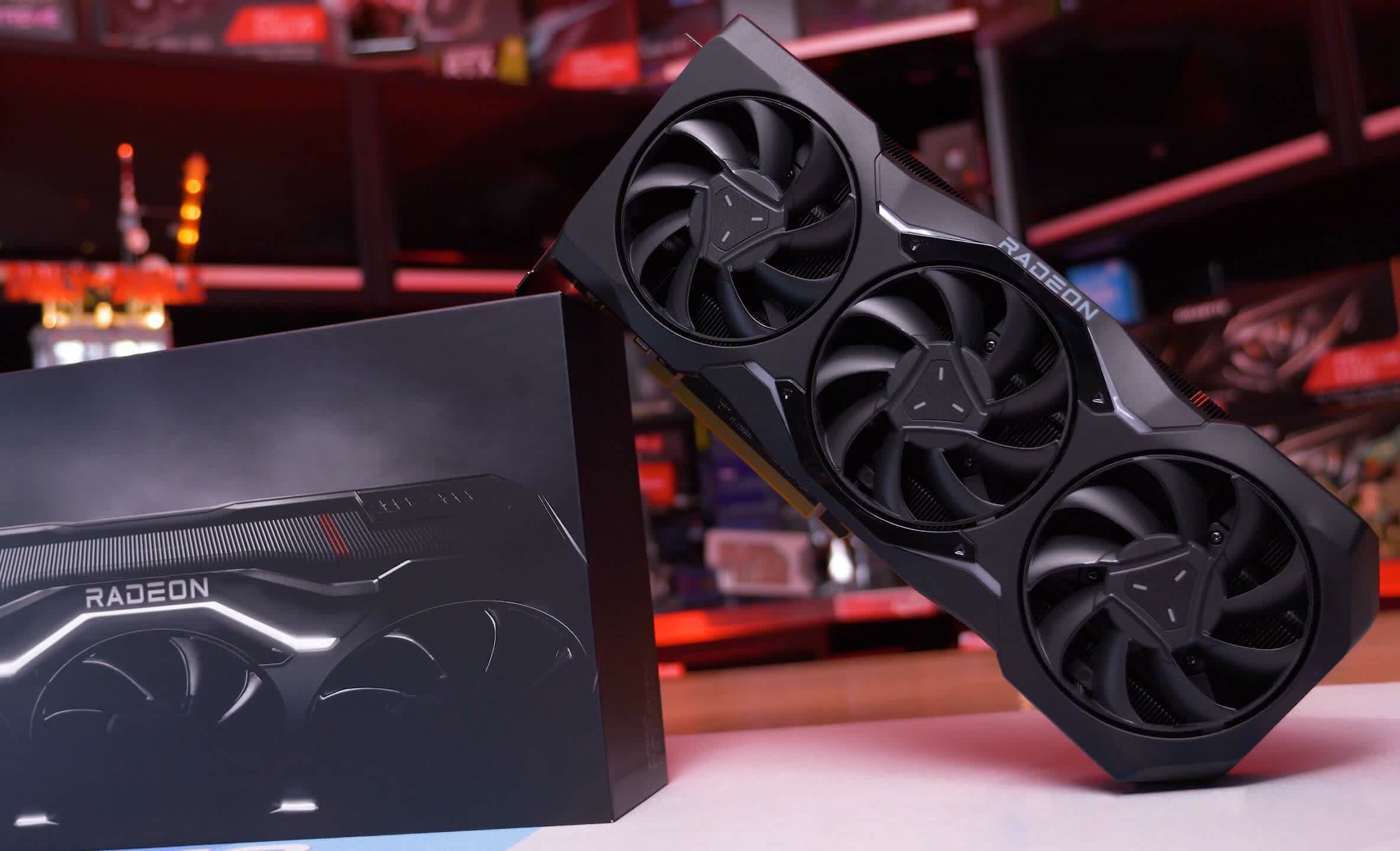
In contrast is the Radeon RX 7900 XTX, which launched this month. This card was relatively popular and sold out at many retailers within the first hour of sales going live, some people even attempted to get a great deal thanks to an amusing price error from Best Buy. But at this point a week after launch it is quite difficult to buy the 7900 XTX model and we expect that to remain the case for the next few weeks, both in North America and in other territories.
What we have learned in addition to this are two main themes: One is that AMD didn’t supply near the amount of 7900 XTX models as Nvidia did for the RTX 4090 at launch, though this can be region dependent. While the GeForce RTX 4090 had a surprisingly large amount of stock at launch and that helped the huge numbers of sales, the 7900 XTX was more typical in its supply, which is to say on the low side for day-one demand. So while it’s a positive for AMD that the 7900 XTX sold out quickly, part of this is tempered by inadequate supply. Pretty standard stuff for a GPU launch: sales are almost always dictated by the amount of supply, which usually comes in below demand, unless the card in question is especially undesirable like the RTX 4080.
Resupplies for the Radeon 7900 XTX have been coming in respectable numbers, with those resupplies quickly selling out. So the demand for this model is still there which is typical this early for a new GPU. It’s what happens in one or two month from now that will really tell the tale on supply and demand.

The second theme was that the Radeon 7900 XTX easily outsold the RTX 4080. In fact, it wasn’t even close: gamers are preferring the 7900 XTX over the GeForce in this price range, which does make sense based on its overall value and performance relative to the 4080.
One retailer told us the Radeon 7900 XTX on day one would have outsold the RTX 4080 in total since launch if not for limited XTX supply, which so far has been lower than that of the 4080.
Gamers are definitely voting with their wallets here and preferring the better value option…
Gamers are definitely voting with their wallets here and preferring the better value option, so it will be interesting to see where things settle once supply catches up and we’re a few months in post-release.
Does AMD have a long-term winner in the $1,000 price range, or is the RTX 4080 an easy launch day target given its poor reception? Competition will certainly heat up when Nvidia launches the RTX 4070 Ti, which rumors say should come in early January, plus there’s plenty of potential for price drops. We still think the entire high-end GPU market is overpriced from both AMD and Nvidia, so whether that translates into slow sales will be seen in the coming months.
While the 7900 XTX has been a hot seller, the same can’t be said for the 7900 XT. It’s a similar story to the GeForce RTX 40 series, where the flagship model is in hot demand but the tier below just isn’t good value and isn’t capturing the interest of buyers.
Our understanding is the Radeon 7900 XT hasn’t been as dire for sales as the 4080, with retailers not feeling as pained in part due to less stock to try and move, but the 7900 XT has hardly been flying off shelves. In most territories the card hasn’t sold out, with plentiful availability even at the MSRP just a week after launch, whether we’re talking Australia, United States, or elsewhere. Usually that’s a good indicator of weak demand as the norm for GPU launches is poor availability in the first couple of weeks, especially for the base models selling at MSRP.
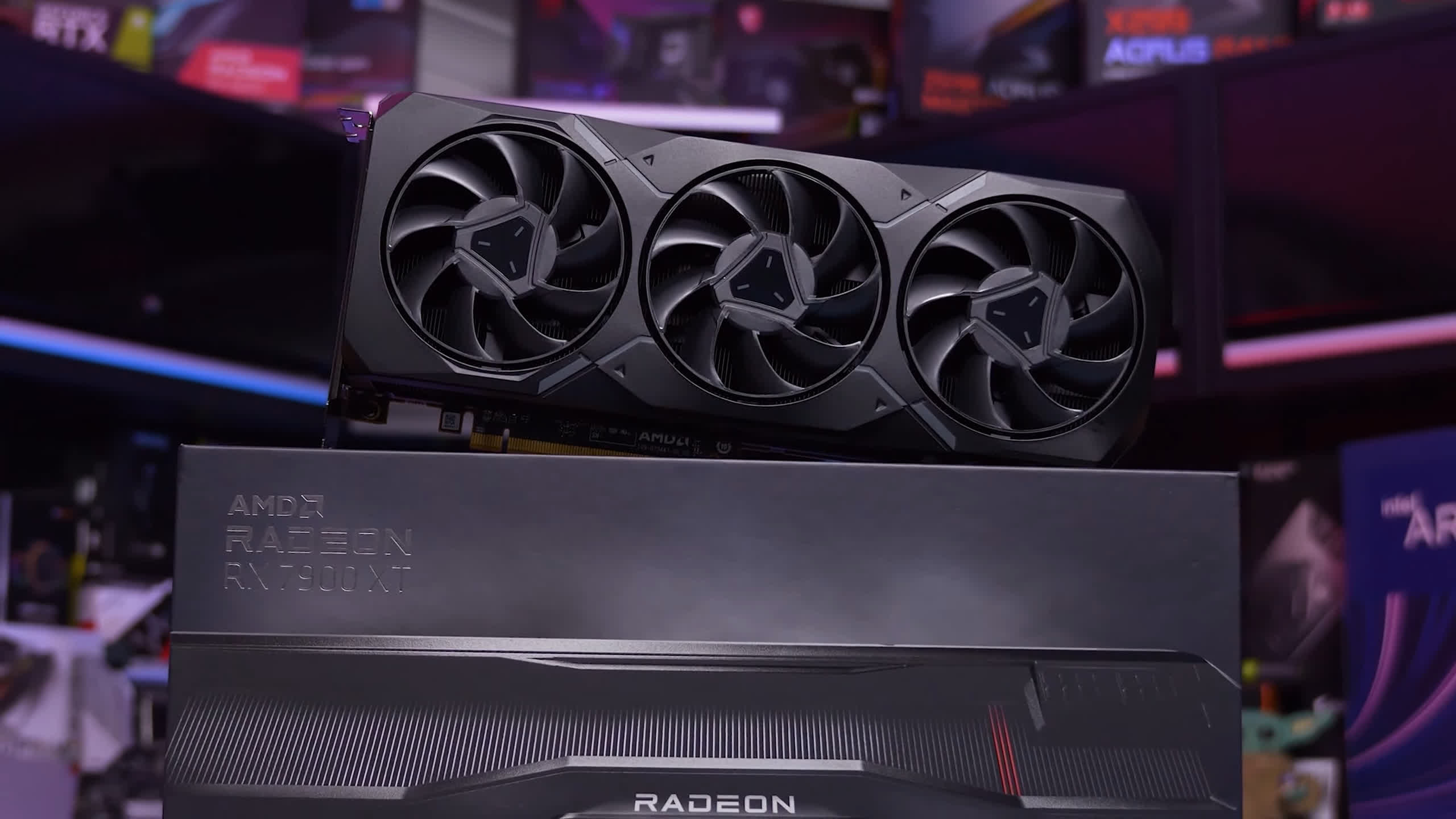
The issue must be that the Radeon 7900 XT is actually worse value than the 7900 XTX based on our cost per frame metrics, and the data from many other reviews that found the same thing.
The 7900 XT is 10 percent cheaper than the XTX, but 17 percent slower on average at 4K, which is hardly going to drum up interest. If AMD wants to see strong sales of this model, the price should be dropped to no more than $800, ideally $750 — though whether or not they actually want to sell this card in great numbers or simply use it to drum up sales for the more expensive XTX remains to be seen. If the 7900 XT continues to sit on shelves though, maybe a price adjustment will be necessary.
Nvidia GeForce GPU Pricing
| MSRP | Lowest Price October | Lowest Price November | Lowest Price December | Current Price Inflation | Increase Nov to Dec | |
|---|---|---|---|---|---|---|
| GeForce RTX 3090 Ti | $2,000 | $1,080 | No stock | No stock | n/a | |
| GeForce RTX 3090 | $1,500 | $1,030 | $1,350 | No stock | n/a | |
| GeForce RTX 3080 Ti | $1,200 | $870 | No stock | No stock | n/a | |
| GeForce RTX 3080 12GB | n/a | $740 | $845 | No stock | n/a | |
| GeForce RTX 3080 10GB | $700 | $740 | No stock | No stock | n/a | |
| GeForce RTX 3070 Ti | $600 | $610 | $630 | $640 | 7% | 2% |
| GeForce RTX 3070 | $500 | $540 | $520 | $570 | 14% | 10% |
| GeForce RTX 3060 Ti | $400 | $430 | $400 | $390 | -3% | -3% |
| GeForce RTX 3060 | $330 | $380 | $340 | $360 | 9% | 6% |
| GeForce RTX 3050 | $250 | $285 | $265 | $270 | 8% | 2% |
| Average | 7% | 3% |
If you were hoping that new graphics card releases would see further price reductions across the graphics card market, we have disappointing news for you: prices have stagnated.
On the Nvidia side, pretty much the entire high-end RTX 30 series is no longer available, with stock for those GPUs running out and being replaced by the RTX 4090, 4080 and other soon to be released models.
Cards in the RTX 3070 tier and below remain available, but with no significant price changes in the last three months. Incredibly, this means that the RTX 3060 and 3050 are still more expensive than the MSRP, and for some models like the RTX 3070, prices have actually gone up. We wouldn’t be surprised if the 3070 sells out within the next month or two as Nvidia looks to launch its replacement.
AMD Radeon GPU Pricing
On the AMD side we’re also seeing price stagnation, and although most models are still available, supply is dwindling for the higher tier cards. This is why models like the Radeon 6800 XT are now much more expensive than they were when we checked in November — all the lower cost $520 units have sold out, only leaving expensive models in stock.
In the mid-range and lower end of the product stack, Radeon GPU pricing has bottomed out at around 20 to 30 percent under the MSRP, so while pricing hasn’t dropped substantially for a few months, at least the floor for these cards is well under MSRP like it should be for two year old GPUs.
| MSRP | Lowest Price October | Lowest Price November | Lowest Price December | Current Price Inflation | Price Increase Nov to Dec | |
|---|---|---|---|---|---|---|
| Radeon 6950 XT | $1,100 | $870 | $830 | $800 | -27% | -4% |
| Radeon 6900 XT | $1,000 | $670 | $655 | $700 | -30% | 7% |
| Radeon 6800 XT | $650 | $540 | $515 | $660 | 2% | 28% |
| Radeon 6800 | $580 | $510 | $510 | $510 | -12% | 0% |
| Radeon 6750 XT | $550 | $450 | $390 | $390 | -29% | 0% |
| Radeon 6700 XT | $480 | $390 | $350 | $360 | -25% | 3% |
| Radeon 6650 XT | $400 | $270 | $260 | $285 | -29% | 10% |
| Radeon 6600 XT | $380 | $290 | $290 | $290 | -24% | 0% |
| Radeon 6600 | $330 | $220 | $215 | $210 | -36% | -2% |
| Radeon 6500 XT | $200 | $165 | $160 | $170 | -15% | 6% |
| Radeon 6400 | $160 | $135 | $135 | $140 | -13% | 4% |
| Average | -22% | 5% |
The reason why new GPUs have not brought any benefit to older models in terms of pricing is explained by the fact that both Nvidia and AMD have launched newer and faster GPUs that are priced to deliver equivalent value to last generation models. This is unlike prior generations where the new cards arrived to deliver more performance in the same price brackets as the older hardware. For example, the Radeon 7900 XTX could easily be part of the same family as the Radeon 6800, as it offers roughly double the performance at double the price.
Oversupply of new graphics cards is also less of a factor now than it was months ago at the collapse of crypto mining. Those GPUs have slowly sold over time, with retailers saying demand for those cards did increase around the announcement and release of new RTX 40 series GPUs. With less inventory pressure, companies have less incentive to make further price corrections.
Used GPU Pricing
| MSRP | Newegg Lowest Price December | eBay Used Price November | eBay Used Price December | Used Price Hike Nov to Dec | Discount Used vs New | |
|---|---|---|---|---|---|---|
| GeForce RTX 3090 Ti | $2,000 | No stock | $1,112 | $1,133 | 2% | |
| GeForce RTX 3090 | $1,500 | No stock | $806 | $803 | 0% | |
| GeForce RTX 3080 Ti | $1,200 | No stock | $753 | $783 | 4% | |
| GeForce RTX 3080 12GB | n/a | No stock | $662 | $675 | 2% | |
| GeForce RTX 3080 10GB | $700 | No stock | $578 | $587 | 2% | |
| GeForce RTX 3070 Ti | $600 | $640 | $450 | $483 | 7% | -24% |
| GeForce RTX 3070 | $500 | $570 | $372 | $371 | 0% | -35% |
| GeForce RTX 3060 Ti | $400 | $390 | $303 | $310 | 3% | -20% |
| GeForce RTX 3060 | $330 | $360 | $275 | $274 | 0% | -24% |
| GeForce RTX 3050 | $250 | $270 | $216 | $242 | 12% | -10% |
| Average | 3% | -23% |
With no price movement in the new market, we’ve also observed price stagnation in the used market. If you were planning on buying an Nvidia Ampere GPU, for example, there’s no improvement compared to last month’s pricing.
Used graphics cards are getting buyers a ~23% discount on retail prices on average. There’s been no significant change for higher end GPUs that are now out of stock, as the market has settled towards a solid equilibrium — and some of these cards are being sold in significant quantities right now.
| MSRP | Newegg Lowest Price December | eBay Used Price November | eBay Used Price December | Used Price Hike Nov to Dec | Discount Used vs New | |
|---|---|---|---|---|---|---|
| Radeon 6950 XT | $1,100 | $800 | n/a | $736 | n/a | n/a |
| Radeon 6900 XT | $1,000 | $700 | $611 | $634 | 4% | -9% |
| Radeon 6800 XT | $650 | $660 | $495 | $497 | 0% | -25% |
| Radeon 6800 | $580 | $510 | $405 | $429 | 6% | -16% |
| Radeon 6750 XT | $550 | $390 | $309 | n/a | n/a | n/a |
| Radeon 6700 XT | $480 | $360 | $296 | $303 | 2% | -16% |
| Radeon 6650 XT | $400 | $285 | n/a | n/a | n/a | n/a |
| Radeon 6600 XT | $380 | $290 | $213 | $207 | -3% | -29% |
| Radeon 6600 | $330 | $210 | $169 | $174 | 3% | -17% |
| Radeon 6500 XT | $200 | $170 | $126 | $117 | -7% | -31% |
| Radeon 6400 | $160 | $140 | n/a | n/a | n/a | n/a |
| Average | 1% | -20% |
Similar story for AMD’s Radeon 6000 series. While you’re not getting as much of a discount on the used market and volumes are much lower relative to Nvidia, there hasn’t been any noteworthy price movement compared to November.
| MSRP | eBay Average Price October | eBay Average Price November | eBay Average Price December | Current Price Inflation | Price Increase Nov to Dec | |
|---|---|---|---|---|---|---|
| GeForce RTX 2080 Ti | $1,000 | $397 | $384 | $383 | -62% | 0% |
| GeForce RTX 2080 Super | $700 | $313 | $315 | $306 | -56% | -3% |
| GeForce RTX 2080 | $700 | $276 | $259 | $274 | -61% | 6% |
| GeForce RTX 2070 Super | $500 | $260 | $246 | $253 | -49% | 3% |
| GeForce RTX 2070 | $500 | $217 | $211 | $227 | -55% | 7% |
| GeForce RTX 2060 Super | $400 | $221 | $211 | $199 | -50% | -6% |
| GeForce RTX 2060 | $350 | $181 | $167 | $179 | -49% | 7% |
| Average | -55% | 2% |
For Nvidia’s Turing generation, it seems lots of people are selling RTX 2080s now, but the price has actually gone up somewhat compared to last month.
Some of these models aren’t great value either, such as the RTX 2070 Super at $253 (on average), which sounds inexpensive, but you receive similar performance to a used Radeon 6600 XT that’s just $207.
| MSRP | eBay Average Price October | eBay Average Price November | eBay Average Price December | Current Price Inflation | Price Increase Nov to Dec | |
|---|---|---|---|---|---|---|
| GeForce GTX 1660 Ti | $280 | $139 | $131 | $132 | -53% | 0% |
| GeForce GTX 1660 Super | $230 | $129 | $123 | $124 | -46% | 1% |
| GeForce GTX 1660 | $220 | $116 | $107 | $116 | -47% | 8% |
| GeForce GTX 1650 Super | $160 | $108 | $105 | $113 | -30% | 7% |
| GeForce GTX 1650 | $150 | $109 | $99 | $103 | -31% | 4% |
| Average | -41% | 4% |
The GTX 16 series isn’t too bad on the used market though. Yes, pricing hasn’t moved much, but if you’re after a GPU for less than $150 and don’t want to go all the way back to a Radeon RX 580, there are some decent choices to be had here.
The GTX 1660 Super for $124 is much faster than the RX 6500 XT yet is only slightly more expensive on the used market and much cheaper compared to new models of that GPU. The next step up is the Radeon RX 6600 which costs 40% more used, and offers about 40% more performance, so that feels right at the moment.
| MSRP | eBay Average Price October | eBay Average Price November | eBay Average Price December | Current Price Inflation | Price Increase Nov to Dec | |
|---|---|---|---|---|---|---|
| Radeon 5700 XT | $400 | $177 | $162 | $172 | -57% | 6% |
| Radeon 5700 | $350 | $160 | $134 | $142 | -60% | 5% |
| Radeon 5600 XT | $280 | $136 | $118 | $132 | -53% | 12% |
| Radeon 5500 XT 8GB | $200 | $111 | $112 | $113 | -43% | 1% |
| Average | -53% | 6% |
Finally we have the Radeon RX 5000 series, which also offers good value below $200 on the used market, despite a small price increase month on month.
Supply isn’t as strong as it once was as many miners have already flogged them off, but there’s still a reasonable range to choose from and pricing is quite attractive for gaming — though beware that most used models will be heavily mined on.
What We Learned
Overall, it’s been an interesting month for the GPU market largely dominated by the launch of new AMD GPUs, with decent demand for the Radeon 7900 XTX in particular — AMD just needs to supply more of these while they can and capitalize on the poor positioning of the competing GeForce RTX 4080.
Like we’ve seen in many past launches, Nvidia has substantially out-supplied AMD at launch, so AMD will need to rely on fast restocks to keep up with gamers wanting to buy their flagship. The RTX 4090 also remains in good demand and there are signs of recovering availability there.
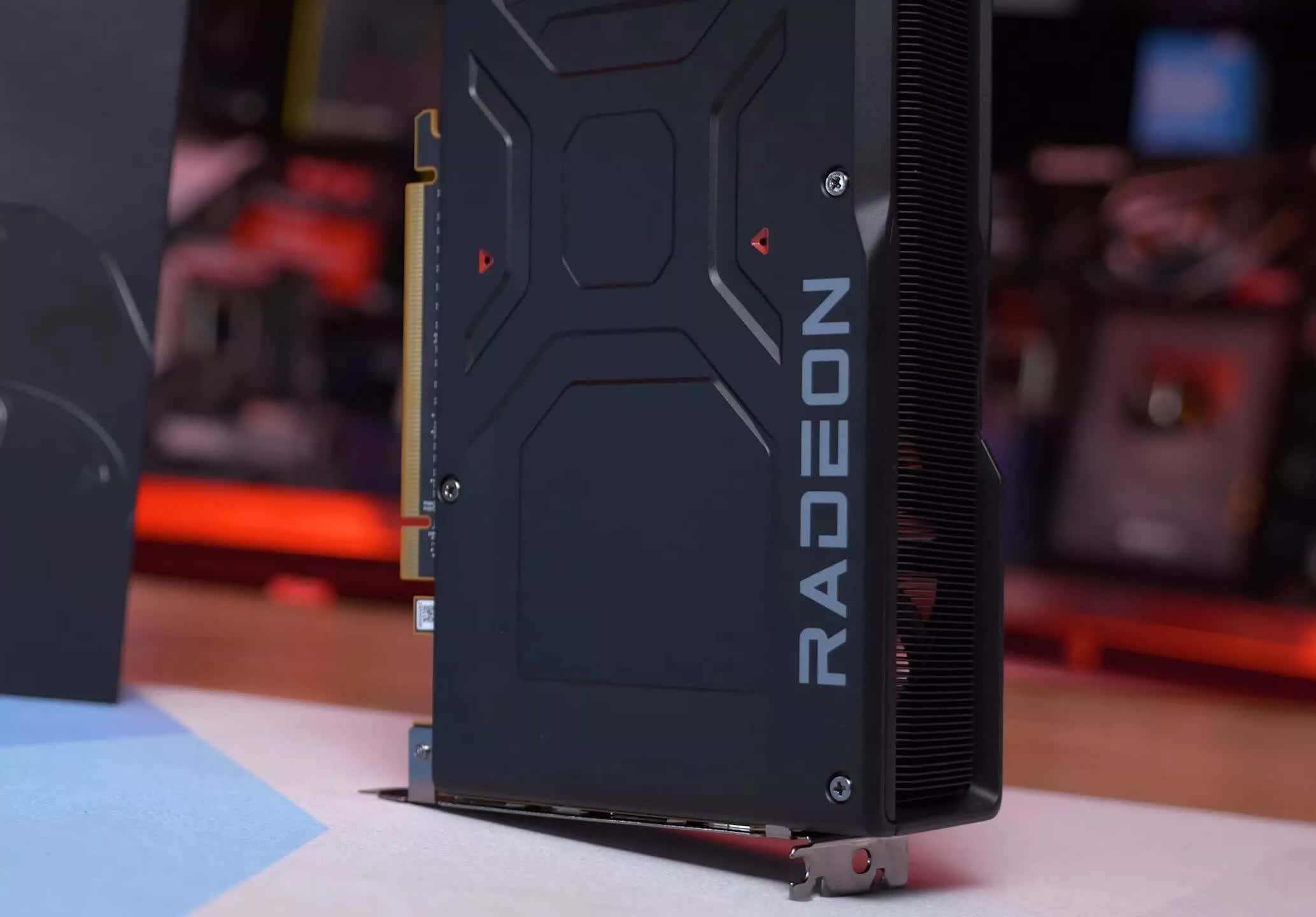
What’s been quite unique about this year’s GPU launches is the terrible reception for the tier-below models in the RTX 4080 and RX 7900 XT, neither of these received overly positive reviews and buyers are voting with their wallets, typically avoiding them in favor of other options (more expensive ones apparently).
It’s a different strategy from both brands that we haven’t seen before, incentivizing the purchase of the highest end and most expensive models. Whether or not that will be a good strategy long-term remains to be seen, as there are plenty of prospective buyers choosing to wait for mainstream-priced alternatives, buy from existing stock, or even heading to the used market to satisfy their needs.
In general there’s also been a feeling of a weak GPU generation and lots of disappointment among shoppers, which we think is being reflected in stagnating prices — there’s no need to drop prices any further if the new stuff isn’t gobbling up most of the sales and all of the attention. Older cards from the previous generation remain viable options in today’s market, and the lack of anything below $900 in the RTX 40 and RX 7000 series has shut out the vast majority of buyers for now. New products at or below $500 can’t come fast enough, they are much needed to breathe some life into this space.
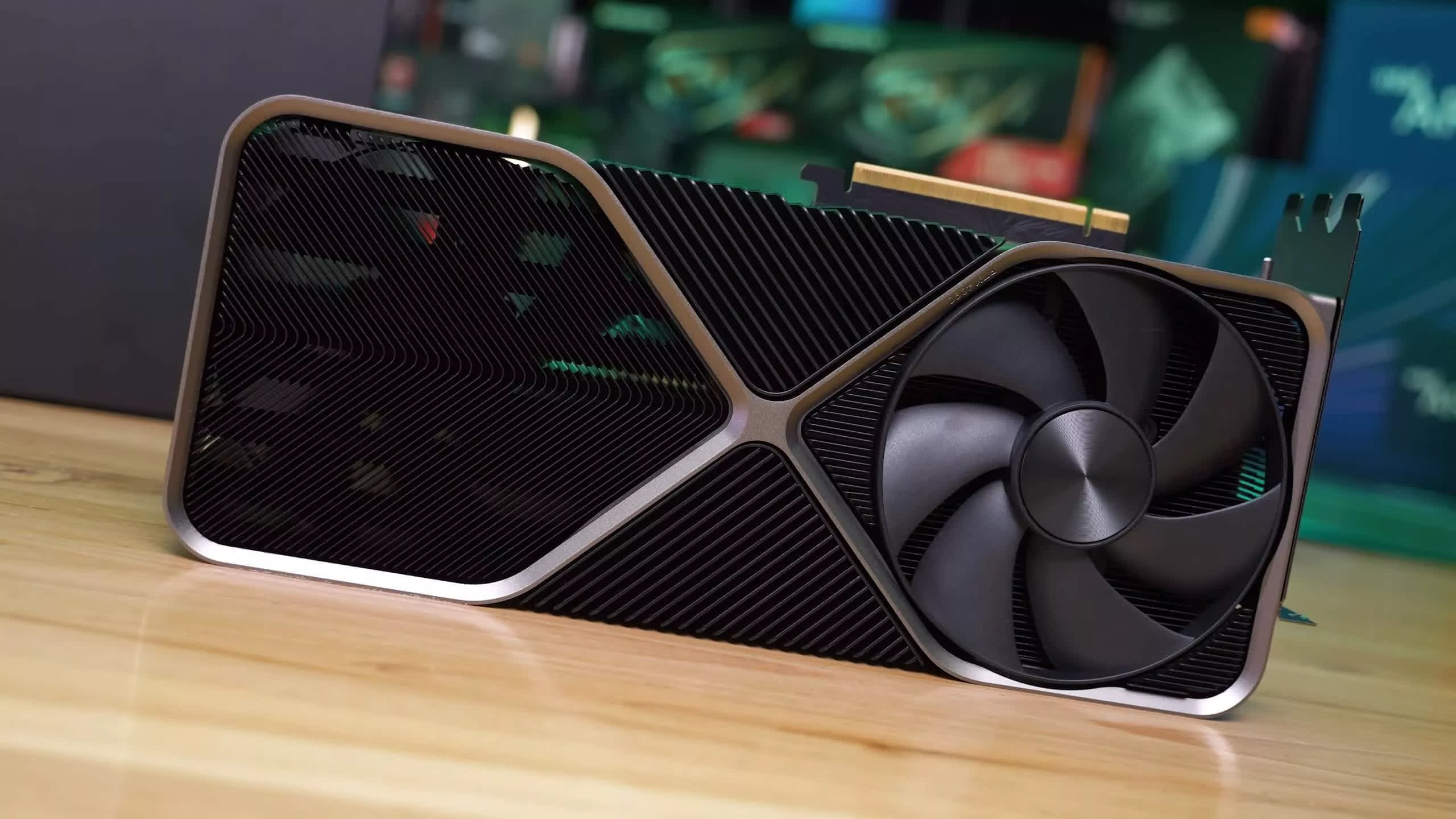
With this new strategy from GPU makers pushing their halo products to look as good as possible, it’s important to remember you don’t need to get caught up in the hype and spend well above your means.
There will be new mid-range models in 2023, and if you keep choosing not to buy terrible value GPUs, companies will have no choice but to respond with more attractive pricing — not just for those cards but also for upcoming launches. Waiting is fine, most GPUs are genuinely quite capable of playing today’s games, so no, you don’t necessarily need an RTX 4090.
Shopping Shortcuts:
- AMD Radeon RX 6600 XT on Amazon
- AMD Radeon RX 7900 XTX on Amazon
- Nvidia GeForce RTX 4090 on Amazon
- Nvidia GeForce RTX 3070 Ti on Amazon
- Nvidia GeForce RTX 3080 on Amazon
- AMD Radeon RX 6800 on Amazon
- Nvidia GeForce RTX 3060 on Amazon

